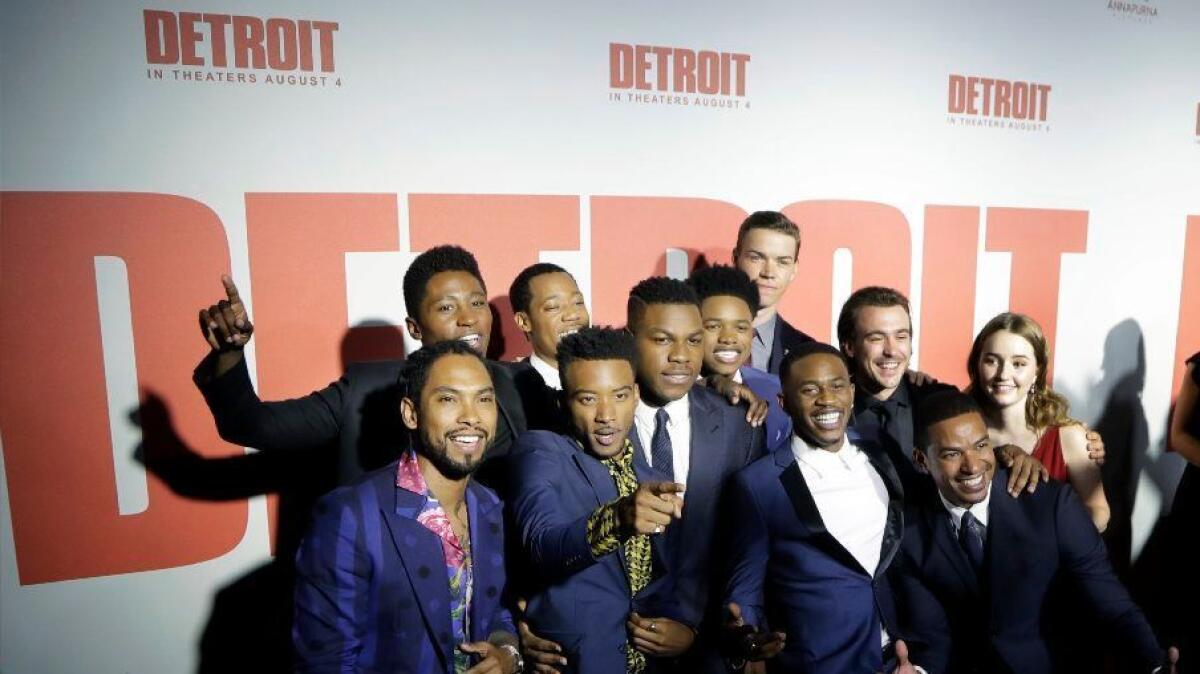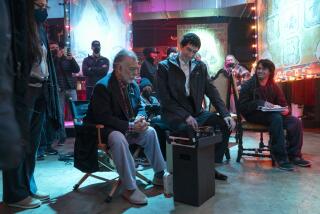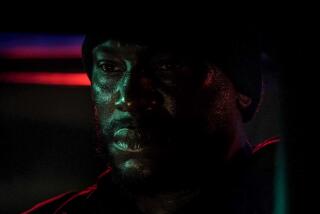Showing ‘Detroit’ in Detroit

Directors in recent years have returned to the unique American places they make movies about. Ava DuVernay had a celebrated visit to Selma, and Alexander Payne brought “Nebraska” back to the people of the small towns he both tweaked and championed.
But Kathryn Bigelow’s return Tuesday night to show her movie “Detroit” in Detroit contained a special aura even by these standards.
In limited release beginning Friday, “Detroit” centers on a grim instance of police brutality amid the 1967 Detroit civil unrest, taking place 50 years ago this week. In both the movie and real life, three young black men ended up dead at the Algiers Motel after a night of terror enacted by white members of the Detroit Police Department.
Bigelow, director of “The Hurt Locker” and “Zero Dark Thirty,” had spent months researching and prepping the movie in the Motor City before reluctantly moving the production to Massachusetts for tax reasons. But the city continued to hold a particular place in her heart.
As she stood before the screening at the front of the Fox Theatre, at more than 5,000 seats the largest of the extant 1920s movie palaces, she said, “It’s an extraordinary honor to be on [this] stage,” in front of the people of Detroit.
The feeling was mutual.
For the previous several days, the city had been marking the unrest and the incident with a number of events and ceremonies. The Fox event was a culmination of sorts.
A slew of Detroit’s luminaries, including music icon Martha Reeves and Police Chief (and LAPD veteran) James Craig, turned out to the crowded event downtown. The boxer Thomas Hearns was there; so was the journalist and commentator Michael Eric Dyson, a native Detroiter who helped show Bigelow around when she first started conducting research in the city.
All joined the cast at the Fox, a National Historic Landmark and a venue that makes a key appearance in the film. The musically inclined young actor Algee Smith, who plays a Motown singer caught in the brutality, received the biggest cheers in pre-screening introductions.
Earlier he told The Times that the movie “shows you the beauty of Detroit, the beautiful music and everything else. It does point out the problems with the police force. But it shows that the city is still thriving. Detroit is not dead. Even after the situations [50 years ago] there’s a resilience, there’s power, there’s dignity.”
Even some baseball fans, wandering past on their way to nearby Comerica Park for the Tigers game with the Royals, stopped to gaze. They snapped photos on crowded Woodward Avenue, where, just a few miles north, the Algiers once sat.
Inside, the movie played to an enthusiastic audience of more than 2,000 that responded lustily to its many difficult moments and occasional slivers of light.
The Detroit Free Press responded by making the event its centerpiece news item Wednesday, touting the premiere on its front page as a “crowded collision of media and movie stars” and “an evening that rivaled any cinematic event the Motor City had seen for decades.”
Despite the red-carpet hoopla and a glittery pre-screening reception, Bigelow made sure the evening contained a note of solemnity too. “Three young people lost their lives at the Algiers that night,” she told the audience before the screening. “I dedicate [this film] to the memory of Carl Cooper, Aubrey Pollard and Fred Temple,” citing the victims’ names.
Introducing Bigelow, Dyson said the director was “one of the most remarkable and riveting women of our times” who had “the courage, the gall, the unabashed temerity to tell us what’s going on.”
Alluding to some Web commentators who questioned whether Bigelow’s race made her well-suited to tell the story, Dyson asked “Why a white woman gotta do it?” then quipped that since white people were responsible for the tragedy, they “gotta clean up the mess.”
He also noted that Bigelow could “use and leverage her white privilege to identify with black and brown people who are demonized.”
The Oscar winner, he noted, “has created a film about a little-known tragedy that now the world will know.”
“We already know,” he added, to loud cheers from the audience.
Indeed, what’s been notable about the local reaction to “Detroit” is the sense of pride residents take in it. Over the past several days, people all over the city have talked about the upcoming release excitedly, pointing out bespoke billboards from local artists and generally expressing satisfaction that Hollywood had come to their city.
The enthusiasm might seem slightly misplaced, as “Detroit” in fact depicts a very ugly chapter in the city’s history, with racists on the police force and a death toll that climbed at least into the several dozens.
Craig said it was the contrast to today’s Detroit Police Department that took some of the sting out and even made the movie’s release an affirming event. “We’re celebrating the film to show that we’re not that — that we have grown,” he told The Times.
And residents both white and black said the film’s tone was, in a way, beside the point.
“It’s our history,” said one native. “And now it’s being told. That’s all Detroiters want.”
See the most-read stories in Entertainment this hour »
Twitter: @ZeitchikLAT
More to Read
Only good movies
Get the Indie Focus newsletter, Mark Olsen's weekly guide to the world of cinema.
You may occasionally receive promotional content from the Los Angeles Times.











